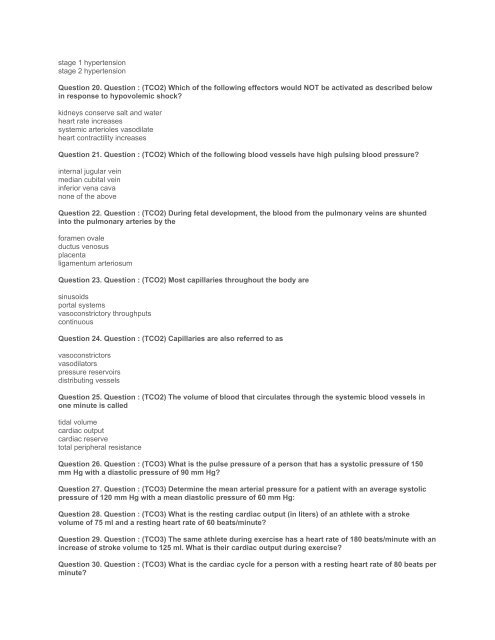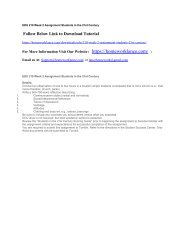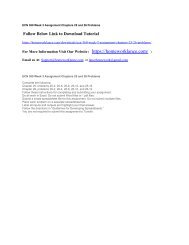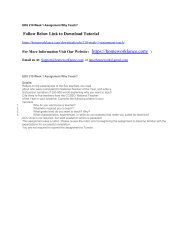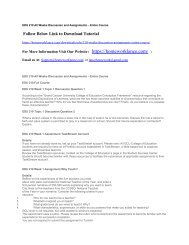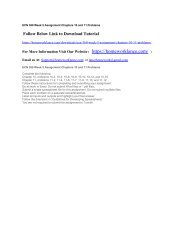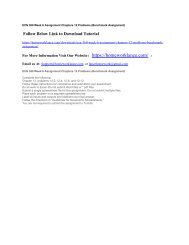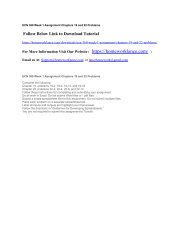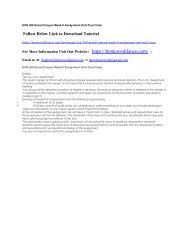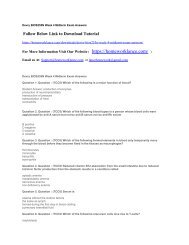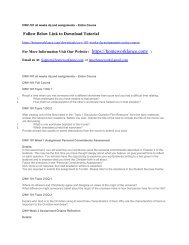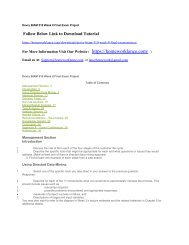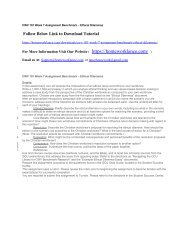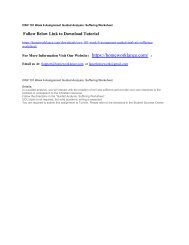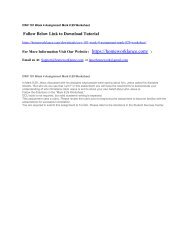Devry BIOS255 Anatomy and Physiology with Lab III – Entire Course
Create successful ePaper yourself
Turn your PDF publications into a flip-book with our unique Google optimized e-Paper software.
stage 1 hypertension<br />
stage 2 hypertension<br />
Question 20. Question : (TCO2) Which of the following effectors would NOT be activated as described below<br />
in response to hypovolemic shock?<br />
kidneys conserve salt <strong>and</strong> water<br />
heart rate increases<br />
systemic arterioles vasodilate<br />
heart contractility increases<br />
Question 21. Question : (TCO2) Which of the following blood vessels have high pulsing blood pressure?<br />
internal jugular vein<br />
median cubital vein<br />
inferior vena cava<br />
none of the above<br />
Question 22. Question : (TCO2) During fetal development, the blood from the pulmonary veins are shunted<br />
into the pulmonary arteries by the<br />
foramen ovale<br />
ductus venosus<br />
placenta<br />
ligamentum arteriosum<br />
Question 23. Question : (TCO2) Most capillaries throughout the body are<br />
sinusoids<br />
portal systems<br />
vasoconstrictory throughputs<br />
continuous<br />
Question 24. Question : (TCO2) Capillaries are also referred to as<br />
vasoconstrictors<br />
vasodilators<br />
pressure reservoirs<br />
distributing vessels<br />
Question 25. Question : (TCO2) The volume of blood that circulates through the systemic blood vessels in<br />
one minute is called<br />
tidal volume<br />
cardiac output<br />
cardiac reserve<br />
total peripheral resistance<br />
Question 26. Question : (TCO3) What is the pulse pressure of a person that has a systolic pressure of 150<br />
mm Hg <strong>with</strong> a diastolic pressure of 90 mm Hg?<br />
Question 27. Question : (TCO3) Determine the mean arterial pressure for a patient <strong>with</strong> an average systolic<br />
pressure of 120 mm Hg <strong>with</strong> a mean diastolic pressure of 60 mm Hg:<br />
Question 28. Question : (TCO3) What is the resting cardiac output (in liters) of an athlete <strong>with</strong> a stroke<br />
volume of 75 ml <strong>and</strong> a resting heart rate of 60 beats/minute?<br />
Question 29. Question : (TCO3) The same athlete during exercise has a heart rate of 180 beats/minute <strong>with</strong> an<br />
increase of stroke volume to 125 ml. What is their cardiac output during exercise?<br />
Question 30. Question : (TCO3) What is the cardiac cycle for a person <strong>with</strong> a resting heart rate of 80 beats per<br />
minute?


